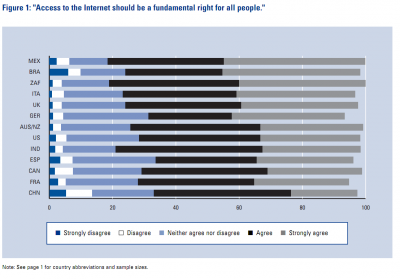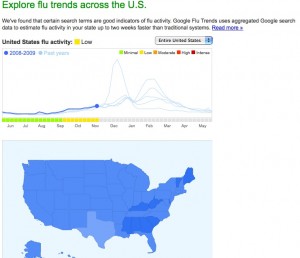JD Hildebrant in SD Times makes the case that piracy is actually good for content providers because it serves as a “try before you buy” mechanism. While that may or may not be true because you can’t prove a counterfactual, the ethical question remains.. “why shouldn’t content creators be compensated for their work?” Don’t those who produce content and those who provide content have a right to monetize the web?
Critics of SOPA point to the real danger that companies could be liberal with their efforts to “take down” sites that might be violating copyright and as a result unduly dampen the exercise of free speech on the web. The basis of the on-line protests against SOPA and PIPA was rooted largely in the belief that shutting down sites like PirateBay and BitTorrent were akin to a prior-restraint free speech violation. An interesting study by the Oxford Internet Institute finds an emerging global internet culture that increasingly sees Internet access as a fundamental right:
But the problem arises when you define “data” as “speech.” Indeed, most data is speech. But just like in the US where we have tiered level of speech protection (e.g. commercial speech has less protection than political speech), it would seem fair to suggest that content creators have a right to fully monetize their product. This is the basis of liberal capitalism. If you create a good, you should be entitled to be compensated for your labor. But because the Internet is oblivious to the type of data being disseminated, treating data as speech becomes a challenging nut to crack. It is preferable to an alternative view of data as product or data as commerce.




